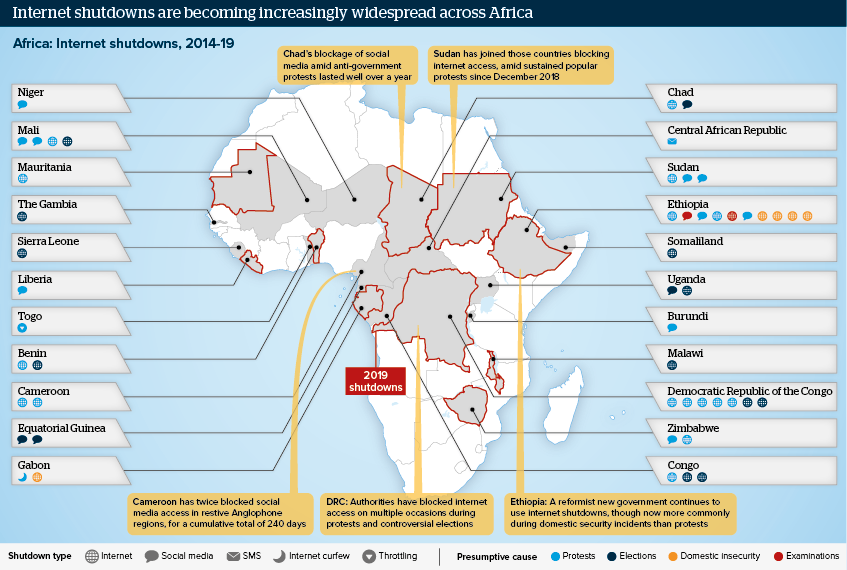Internet shutdowns in Africa may become entrenched
Authoritarian governments are increasingly blocking or restricting internet access to suppress domestic dissent
Source: Access Now; Netblocks; CIPESA
Outlook
On July 14, Chad announced it would restore access to social media, after restrictions lasting over a year. State-ordered internet blockages have become increasingly common across Africa, especially in authoritarian states and primarily during periods of social turbulence, including elections, protests and incidents of domestic insecurity.
Ten African countries have imposed internet restrictions so far in 2019 and many are repeat offenders, suggesting the trend is unlikely to recede soon. However, although the intent may be to stifle anti-government mobilisation and sharing of critical information, the result may ultimately be to strengthen alternative vectors of communication and deepen domestic discontent.
Impacts
- Governments may employ increasingly sophisticated methods to target restrictions, censor or monitor certain individuals, groups or issues.
- Activists will become more adept at using technical (VPN, proxy, peer-to-peer, mesh) as well as traditional means to evade restrictions.
- Legal challenges to internet blackouts will grow, including against telecommunications companies that implement government-ordered bans.
- Some countries (Kenya, Tanzania, Uganda, Zambia, Zimbabwe) may favour tightening legal restrictions on web-based media over blackouts.
